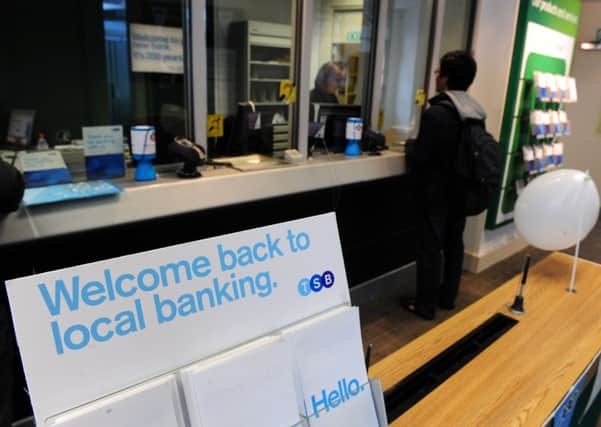Martin Flanagan: TSB rising to the Brexit challenge
This article contains affiliate links. We may earn a small commission on items purchased through this article, but that does not affect our editorial judgement.


Underlying earnings have jumped 95 per cent in the first nine months of this year, while not far off 7 per cent of all customers opening a bank account or switching banks have chosen TSB, owned by Sabadell of Spain after a relatively brief period of independence when it was floated off from Lloyds Banking Group.
Customer deposits are up a shade under 12 per cent at £29 billion, while total lending is ahead 8.5 per cent at £28.6bn. Chief executive Paul Pester echoes other UK bank chiefs in saying the group has not seen any real impact on consumer sentiment, including mortgage lending, since the Brexit vote last June.
Advertisement
Hide AdAdvertisement
Hide AdSome in the market had wondered whether Sabadell might have had second thoughts about its takeover of TSB if it had anticipated which way the UK’s European Union referendum vote would go.
But surely not on these numbers. And, anyway, that speculation always seemed fanciful. Sabadell took a strategic decision on driving into the UK via the acquisition; it was not a tactical foray thrown off course by Brexit because TSB has no business to speak of across the Channel.
On this performance, Pester can justifiably say his bank has plenty going for it on its home turf. So far TSB seems to be walking the walk as well as talking the talk on public relations about being a challenger to the Big Four.
Reserve judgment on GDP figures
The third-quarter GDP figures echo much of the positive segmental economic data since the Brexit vote.
A slight slowdown since the EU referendum, but much more resilient than the doomsters predicted. Growth came in at 0.5 per cent in the three months to end-September, slightly down on the 0.7 per cent in the previous quarter, but more positive than the City expected.
The only fly in the ointment with this more optimistic than expected scenario is that if the UK economy was to deteriorate after the Brexit vote it would most likely be gradual as the UK/EU trade negotiations dragged out rather than any fall off a cliff.
Nerves in the immediate aftermath, yes. Tailspin, no.
The best approach to each piece of economic good news is to be grateful; but keep judgmental powder dry.
